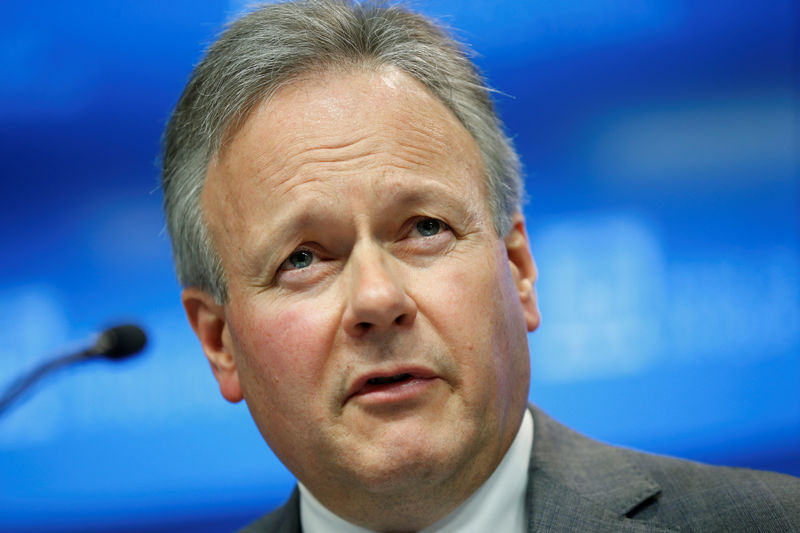 © Reuters. Bank of Canada Governor Stephen Poloz speaks a news conference in Ottawa
© Reuters. Bank of Canada Governor Stephen Poloz speaks a news conference in OttawaBy Anu Bararia
BENGALURU (Reuters) – The Bank of Canada will leave rates unchanged until April, held back by the uncertainty over how highly indebted consumers will handle increasing borrowing costs and the unknown fate of the North American Free Trade Agreement, a Reuters poll found.
Having increased interest rates in July and September, the consensus in this week’s poll of over 30 economists was for the BoC to hold fire at its upcoming rate-setting meeting on Dec. 6.
About a third of common respondents, who participated in the latest and previous poll taken ahead of the central bank’s October meeting, pushed their call for a rate hike to early next year from December.
That shift in view is largely based on the cautious tone of the central bank at October’s meeting, highlighting that the course of further rate increases will be mainly data-driven.
The central bank is forecast to hike next in April, by 25 basis points, taking the policy rate to 1.25 percent.
“The Bank of Canada remains more hesitant and the many uncertainties, including the outcome of the North American Free Trade Agreement (NAFTA) negotiations, should prompt it to wait until next April before continuing its monetary tightening,” noted Benoit Durocher, senior economist at Desjardins.
“We expect a slowdown (in economic growth) in the second half of 2017. Inflation rate also decreased again in October. This makes more space for the Bank of Canada.”
Exports have been falling for the past few months, in part because of the recent surge in the local currency, and could take a further hit if NAFTA talks turn ugly.
There is a possibility the Canadian dollar will remain subdued on the expected policy differential with the Federal Reserve which is all set to hike rates next month.
But the threat from U.S. President Donald Trump to scrap NAFTA has dampened the outlook for Canada’s economy, which sends over 75 percent of its exports south of the border.
The next meeting between U.S., Mexican and Canadian officials to overhaul the pact will begin on Dec. 11 in Washington.
“Longer than expected NAFTA talks and growing signs of fading domestic economic momentum may worsen household indebtedness in Canada, raising odds the BoC could stay on hold for the rest of next year,” said Sebastien Lavoie, chief economist at Laurentian Bank Securities.
Canadian household debt as a share of income was at a record 167.8 percent in the second quarter.
But policymakers earlier this week said while vulnerabilities created by high debt levels and a hot housing market remain high, they should ease over time.
“The main domestic risk is the potential impact of higher interest rates on the balance sheet of highly indebted households, which can decelerate consumption more than we expect,” wrote Carlos Capistran, head of Canada and Mexico economics at Bank of America Merrill Lynch (NYSE:), in a note.
“The BoC has to walk a narrow path to avoid a recession or continue fueling a tight credit market.”
However not everyone in the poll was convinced.
Three respondents polled still expect the BoC to hike next week.
After years of cheap borrowing costs, the bank’s view that an economy more sensitive to rate hikes warrants caution does not hold water, said Krishen Rangasamy of National Bank, though he expects the bank to stand pat on policy next month.
“The Bank of Canada has created a beast, which is high indebtedness and a housing market that is getting bigger and bigger,” Rangasamy said. “It is now scared to stop feeding the beast.”
(Polling by Anu BarariaEditing by Chizu Nomiyama)
Source: Investing.com



























